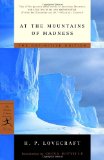People often ask how long should their novel be. We’ve all faced the problem of wanting to fill up two hundred pages and having nothing to say after only didty. Contests often deman a minimum of 50.000 words. What is the right length of a novel?
Let the experts speak:
 Lewis Carroll, Alice in Wonderland – 26.700 words
Lewis Carroll, Alice in Wonderland – 26.700 words- Joseph Conrad, Heart of Darkness – 38.500 words
- H. P. Lovecraft, At the Mountains of Madness – 41.300 words
- Kenneth Grahame, The Wind in the Willows – 58.800 words
- Arthur Conan Doyle, The Hound of the Baskervilles – 59.600 words
- Isaac Asimov, Foundation – 66.000 words
- James Joyce, Dubliners – 67.500 words
- J. D. Salinger, Catcher in the Rye – 74.000 words
- J. K. Rowling, Harry Potter y la Piedra Filosofal – 77.000 words
- Orson Scott Card, Ender’s Game – 101.200 words
- George Orwell, 1984 – 104.000 words
- Stephen King, The Shining – 162.000 words
- Leopoldo Alas Clarín, La Regenta – –
30.400309.000 words - Miguel de Cervantes , Don Quixote – 383.000 words
As you see, both classics and recent best-sellers range in a wide variety of possible lengths. In other words: a novel is as long as it is. It will last for as long as the story requires. Asimov and Carroll were quite consisten in the length of their sequels -perhaps because they were, with all due respect, more of the same-, while for Card and Rowling the sequels grew longer as their universes expanded.
Take a look at your bookshelves: are the books thick, thin, or every size? And which are your favourites? That might be the type of novel that you’re best at writing…

